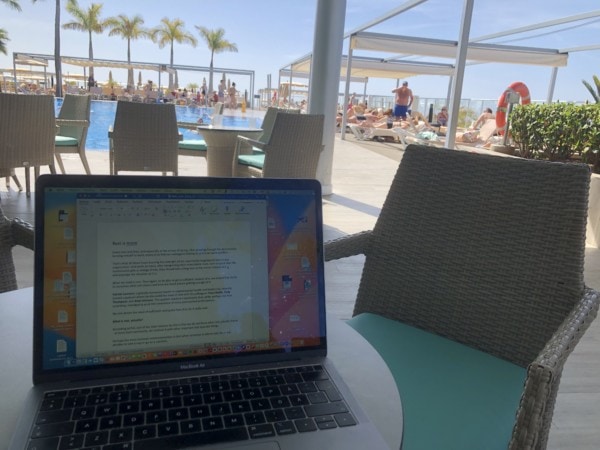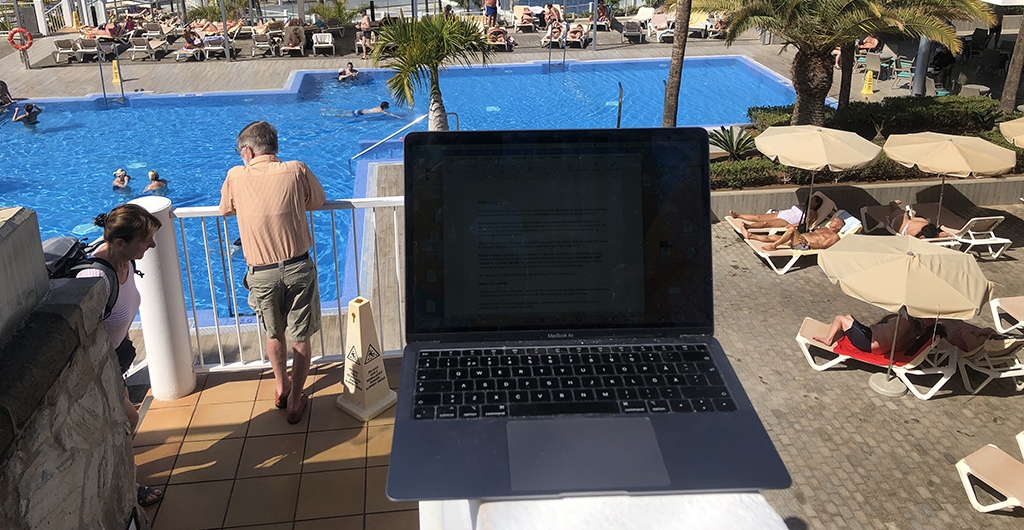14Mar2023
Every now and then, and especially at the arrival of spring, after plowing through the dark months burying oneself to work, many of us find our colleagues looking at us like we were zombies.
That’s what all those hours burning the midnight oil do, even to the brightest of stars in any organization. And while so many, after recognizing their unavoidable state, turn to quick fixes like multivitamin pills or energy drinks, they should take a long look at the mirror instead and acknowledge the situation as it is.
What we need is rest. Then again, to be able to get a sufficient amount of it, we should first clarify to ourselves what rest means and how we could ensure getting enough of it.
Patrick Lencioni, a globally renowned expert in organizational health and leadership, recently hosted a podcast where he discussed the issue of rest with his colleagues at the Table Group, Tracy Noble, Cody Thompson, and Beau Johnson. The quartet reached a conclusion that, while perhaps not that surprising, managed to prick the conscience of many overworked professionals.
No one denies the need of sufficient resting but few of us do it really well.
What is rest, actually?
According to Pat, one of the main reasons for this is that we do not know what rest actually means – or even more commonly, we confuse it with other important but separate things.
Perhaps the most common misinterpretation is that when someone is told to rest, he or she decides to take a nap or go on a vacation.
Vacation and sleep are important things – but as such, they are not rest. Haven’t we all come back from a vacation feeling twice as exhausted as when we headed out? The sheer fact that a trip away from home provides us with distraction simply does not cut it. Mistaking rest with distraction quite often leaves us frustrated and as such can lead to serious consequences.
Pat mentioned having done some research about how rest should be defined, and one keyword popped up: inactive. A time when we really rest should be genuine downtime, when we truly feel that nothing is expected of us.
That does not necessarily mean we should do as close to nothing as possible. Everyone has their personal ideas about how to get into that zone that restores us and makes us ready to go again. What’s restful for one is not necessarily that for the other.
Golf is a perfect example of an activity which can be either restful or stressful. If you are worrying about your result, the event that was meant to help you rest easily turns into a fierce competition. The same can happen on a ten-mile run – if you turn your sportwatch on and start aiming for certain time or amount of burned calories. Having a target easily makes the run an activity, which usually does not lead to the best possible outcome, at least from the viewpoint of rest.
The goal must be restorative – to fill up the batteries. That alone makes a big difference compared to simple distraction. So many of us have become so accustomed to turn on any of the numerous screens we have, it has created a sheer restoration crisis. People have forgotten how to rest – they settle for a simple distraction instead.
Proper rest makes all the difference
If you don’t identify ways to restore yourself, you will be less effective and less enjoyable person at work. Rest really has an effect on us as people and coworkers. That is why taking care of it the right way should be taken seriously.
Learning what is really restful for you does not happen either easily or automatically. You have to put a specific effort to it, and you can’t take any shortcuts.
Pat concluded the podcast by saying that a big part of rest is being off duty and having no musts. When you feel like not having to get something done, the odds to genuine rest improve significantly.
The point in this is that everyone needs to take time to restore. Whatever the way of doing it is, it is important to know that nothing is required from me.
We may live in a culture of busyness, where rest is perceived a sign of weakness. While that perception is being increasingly boosted by social media full of postings about all imaginable kinds – and a few unimaginable ones – of activity, the time has come to reconsider what is really important.
The hard thing is that usually we only have ourselves to blame if we don’t get our rest the right, restoring way. That is why we all need to figure out what is rejuvenating for me and what replenishes me.
Remember to work hard for resting – that is one of the most significant steps you can take to ensure that you will have all the tools you need to figure out how you can again be the best you can be.
Sign up for Nordic Business Forum’s “The 3 secrets to become an ideal team player” – a free webinar with Patrick Lencioni here!

A significant amount of napping, vacationing, distraction and even resting was included in producing this article.


